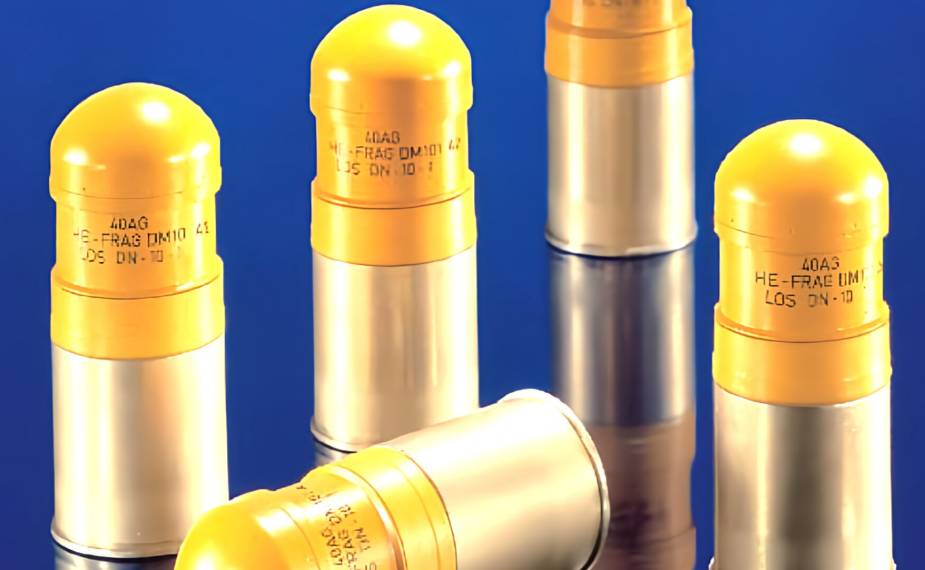Breaking news
European Defence Agency project to examine low velocity 40x46mm grenades for potential ageing degradation.
The European Defence Agency (EDA) and the European Network of National Safety Authorities on Ammunition (ENNSA) have kicked- off their latest ‘Round Robin Test’, focusing on ammunition monitoring for low-velocity 40x46mm grenades. The initiative is designed to compare test results obtained in different Member States’ laboratories working on ammunition safety. A Round Robin Test is an important tool to ensure ammunition's safety and reliability, especially after being in storage for many years.
Follow Army Recognition on Google News at this link

The European Defence Agency (EDA) and the European Network of National Safety Authorities on Ammunition (ENNSA) have kicked- off their latest ‘Round Robin Test’, focusing on ammunition monitoring for low-velocity 40x46mm grenades (Picture source: EDA)
Seven nations, namely Austria, Belgium, Germany, Finland, Netherlands, Norway and Poland as lead nation, are cooperating in this project by performing real fire testing and chemical testing. This collaborative effort focuses on examining the properties of crucial elements such as propellant and explosive materials, with a specific goal of verifying potential degradation due to ageing. Simultaneously, the results obtained will serve as a basis for comparing testing procedures across different laboratories in these nations and ensure the safety and reliability of this ammunition.
The importance of ammunition degradation has become more pronounced as Member States donate arms to Ukraine, making it all the more vital to gather valuable insights and ensure the reliability of ammunition materials. By pooling resources and expertise, these nations are actively working together to address this critical concern.
Round Robin and fire testing
In a Round Robin Test, the results from various laboratories are treated equally, focusing on the consistency of data and the establishment of reliable standards across different conditions. This approach helps ensure that reliable outcomes can be achieved consistently, regardless of the testing environment.
This test includes real fire testing by three participating nations, where muzzle velocity, chamber pressure, action time, dispersion and self-destruction time will be assessed.
This project has an estimated duration of eight months, and the outcome will be an important step to harmonise ammunition safety requirements, procedures and improve interoperability. Additionally, it is an excellent opportunity for ammunition laboratory benchmark procedures and best practices.
Background
In 2010 the EDA Steering Board approved the establishment of ENNSA with the primary task to facilitate communication among the national bodies which are in charge of ammunition safety.
The focus of ENNSA, as agreed by its members, was to explore the harmonisation of ammunition qualification to improve interoperability and increase cooperation among Member States, in parallel with achieving savings across the ammunition production/procurement cycle.
One of the basic tools designed for this purpose is the Round Robin Test programme. It serves to compare and validate test results obtained in different laboratories of the Member States working within the area of ammunition safety.
The Endorsement of Test Houses (ETH) is also a complementary activity to the test where participating Member States can visit different test and evaluation facilities and discuss requirements and qualification processes. These activities are promoted by EDA Defence Test and Evaluation Area as a Critical Enabler of Member States' capability development.
Defense News July 2023



















